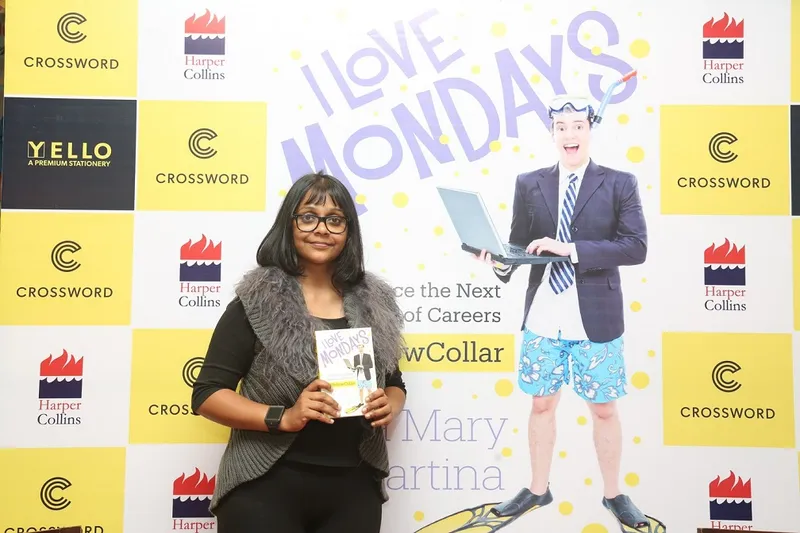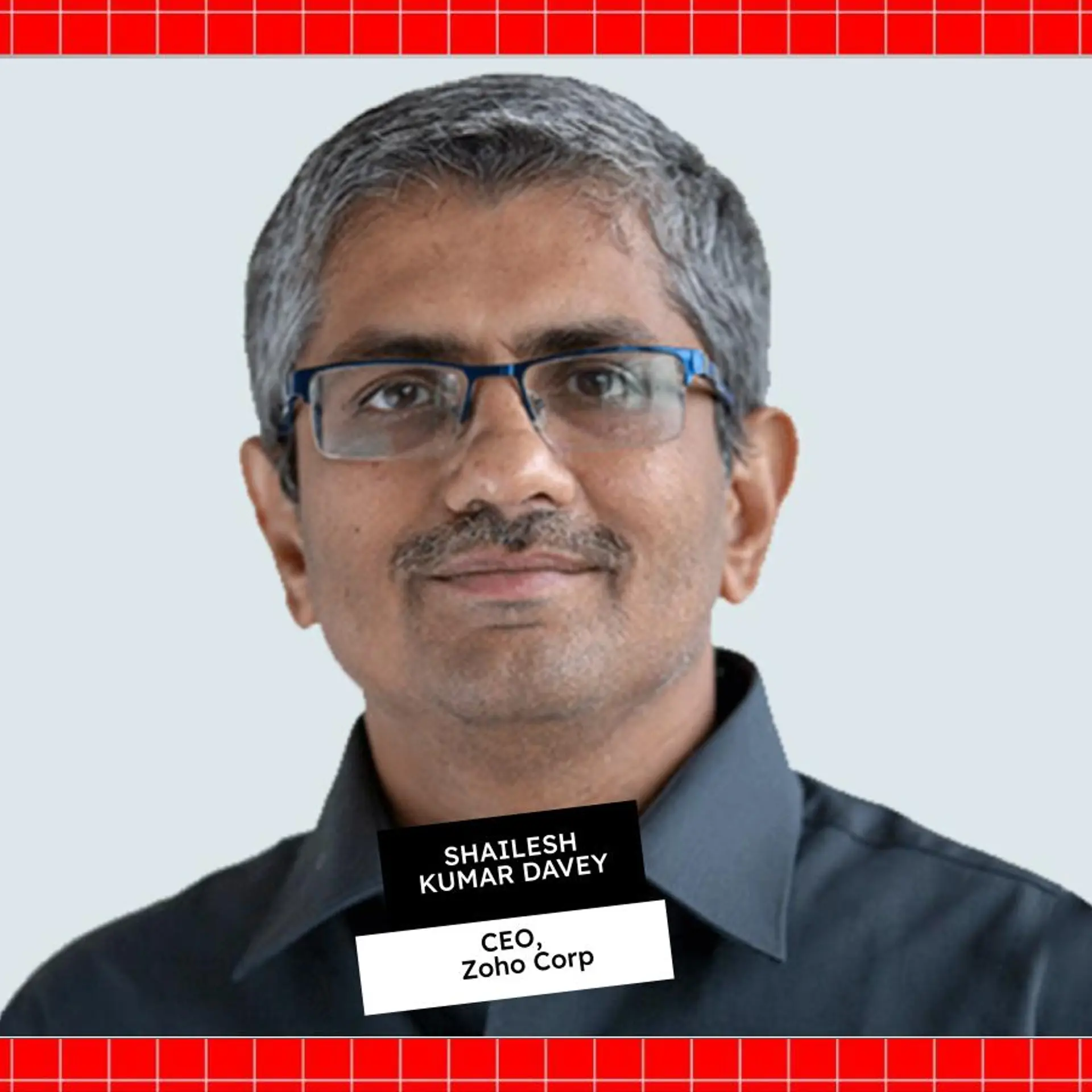“If you are copying an existing model, then you are a businessman, not an entrepreneur” — Mala Mary Martina, author, ‘I Love Mondays’
Mala Mary Martina, aka Mcube, is a serial entrepreneur and education architect. She is CEO of I Love Mondays, working with young adults to help them make career choices; she is also a TEDx speaker and toastmaster.

Her recent book, I Love Mondays, offers snapshots of emerging career and entrepreneurship opportunities in India (see my book review). Mcube joins us in this interview to talk about her entrepreneurial journey, success factors for startups, and the rise of the entrepreneurship movement in India.
YS: How did you get the idea for writing this book?
Mcube: Whenever I am asked this question, I tell people, ''I didn't become an author by choice but out of sheer need.” In my quest to help individuals follow their dreams and become yellow collar-workers, I met several yellow-collar experts who spoke a similar language of success. With 47.3 percent of India's population below 21, the book was one of the ways to reach out to them.
YS: How did you choose the sectors and entrepreneurs you interviewed for the book?
Mcube: The choice was based on what they believed in. It was also coupled with the clarity and level of success they have achieved. Also, most people in the book are first generation success stories, hence more compelling stories.
YS: What is your next book going to be about?
Mcube: I am hoping that I Love Mondays would have achieved its vision of one million kids making educated career choices by 2021! I would like to write about the next generation of successful teens who are yellow-collar workers.
YS: How was your book received? What were some of the unusual responses and reactions you got?
Mcube: Ha ha, the first response was, “Why didn't this book come out when I was a teenager???'' And I would reply, ''Yes, I wish it had come out when I was a teen too!”
During my interviews with the yellow-collar experts in the book, I was also encouraged and complimented for the effort to put this together and for all the work I Love Mondays, the company, is doing with teens.
YS: What are the typical challenges entrepreneurs face as they scale up their company?
Mcube: - Getting swayed away from the initial vision.
- Not standing one's ground of truly coming up with something that would be a game changer as opposed to copying what exists.
- Not realising that money, people, and resources will come when the foundation and vision are strong.
YS: How should innovators strike that delicate balance between ‘stick to your vision’ and ‘adapt to a changed world’?
Mcube: Very simple. Fall in love with the customer for whom you plan to solve the problem. If your vision is making the primary customer unhappy, it is time to adapt. At the end of the day, we want to do WHAT WORKS.
YS: Is there such a thing as the ‘ideal age’ for an entrepreneur?
Mcube: I started when I was 22. Over three businesses, I have gone through many phases — failed; did average; now doing something game changing and fulfilling. I may not have had this luxury if I started when I was 30. So the earlier, the better...
YS: Who are some of the entrepreneurs you admire the most today?
Mcube: Ratan Tata, Elon Musk, Peter Thiel, Richard Branson. All of them because of their compelling vision and the courage to do something game changing. An entrepreneur is someone who finds a new way of adding value. If you are copying an existing model, then you are a businessman, not an entrepreneur.
YS: What emerging trends do you see in terms of women entrepreneurship and empowerment?
Mcube: As a woman, I can say that women are pretty much empowered. I don't see a need for them to be more empowered as such. Women should play to their strengths and can think BIG. Marriage is just another milestone in their life. Nothing has to change.
YS: Where is India situated today in the entrepreneurship movement?
Mcube: The BEST place to be in the world right now is INDIA. We are the hub of innovation, change, youthfulness, energy, and entrepreneurship, which is why we see a surge of NRIs coming back and settling down, or foreign investment pouring in.
YS: What can be done by industry, government, and society to further promote entrepreneurship?
Mcube: There should be more PR on existing entrepreneurial programmes and events. Entrepreneurship should be made a mandated practical subject in all colleges.
YS: What are the key elements of storytelling which entrepreneurs can use in their narrative pitches and PR?
Mcube: Focus on the ‘how’ to tell. Remember that using fewer words can have more impact. Use a problem-solution approach.
YS: What kinds of teaching and coaching activities are you engaged in to reinforce the messages of the book?
Mcube: The company I Love Mondays works with schools, helping teens identify the right career for them after they get a hands-on-experience of the career, as opposed to an assessment or a counselling session. We have seen fabulous results by deploying this strategy. Come to think of it, even in the book, almost everyone who found their calling found it when they experienced a career.
YS: How can youth network with experts when it can be difficult to get in touch with them, or if the youth are in far-away smaller towns?
Mcube: This part is quintessential. A yellow collar worker HAS to network. And networking today is very easy. With zillion social and professional networking platforms, anyone can connect to anyone. The key clearly lies in how to reach out.
Networking with experts is not about - ''Hey, I am interested in films, can you hire me?'' nor is it about hounding someone with Linkedin requests and messages. It is much deeper. Networking is about building a win-win relationship based on trust and professionalism.
At I Love Mondays, we have a program called Junior Apprenticeship, where we help genuinely talented and passionate teens (after they have been screened) get to be mentored by the best of best in the industry. It is a system that has worked well for us.
YS: How effective are news media in educating and informing youth about career options?
Mcube: The media is an extremely effective tool. Like any other tool it has its own pros and cons. I think the words startup, passion, do what you love, and so on are a little glamorised and hyped.
What the teens need today is a reality check. What is the career really about? What are the pros and cons? What skills do I need to equip myself with? What is the price I should be willing to pay to follow my dreams? A little more light on this will help teens make the right career choice, an educated one.
Any kind of research, including perhaps job fairs, opens up one's mind. As long as the intention is to truly gather information, internalise it and then make a choice -- as opposed to jumping onto the job-wagon without really knowing what awaits on the other side.
YS: What is your parting message to the startups and aspiring entrepreneurs in our audience?
Mcube: - Start up to add value.
- Start up to make an impact.
- Start up to inspire.
Be ready to pay the price in the process; the fruits will follow once the roots are strong!







